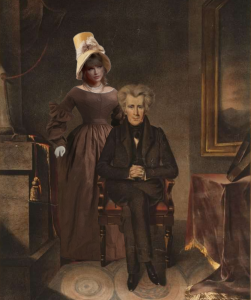In August Wilson’s Tony and Pulitzer award winning play, “Fences,” running at The Hartman Center this weekend, an African-American family deals with the effects racism can have on the relationships between one another.
The story unfolds with Troy and Bono, played by sophomores Kofi Jones and Brian McKinley, entering the stage. The audience witnesses the intimate banter between two close friends after a day of work. Troy is obviously disgruntled. He fiercely questions why white men drove the garbage trucks while the black men were stuck lifting garbage. The audience then realizes they are back in the 1950s and are voyeuristically witnessing injustice considered normal toward African-Americans.
The play follows Troy, the central protagonist, and the fraying relationships he has with his family members. He is a middle-aged father who has a strained marriage with his wife Rose.
They have an ambitious teenage son named Cory who has the dream and skills to become a college football player. Lyons is Troy’s oldest son, a jazz musician who has a difficult time making a living. Bono is Troy’s faithful friend who seems to envision Troy as a role model for life.
Rose, played by senior Riannah Pouncy, insists a fence should be built around her family’s small backyard. Bono utters the lines “Some people build fences to keep people out, others build them to keep people in.”
“In that line he was referring to Rose, but I think the show and its title is directed at Troy,” said Kevin Minor, a freshman who plays Lyons. “He holds his wife and children back from becoming something better than what they are because he is afraid of what the outside world will do to them.”
Troy is an intricate and tormented character, which Jones portrays chillingly. He is a man who has been battered incessantly by racial injustice, which in turn spoils his family’s chances of success.
He refused Cory the chance to better his life through football, neglected to care for his brain-damaged brother Gabriel, and thoroughly ignored Lyons’ passion for jazz music.
Troy is not a character the audience would consciously choose to hate; he is a man simply living through the social inequities of the time.
“I feel the message being sent by August Wilson is acceptance control, and facing your actions,” said Marlon Washington, a senior who plays Gabriel. “Troy is unable to accept the changing world around him, won’t approve of anything he can’t control and can’t deal with the choices he has made. He has built a fence between everyone because of this.”
Critics and performers unanimously agree that Wilson has acutely portrayed a realistic picture of the African-American experience of the 1950s.
“I agree that the play shows quite well the African-American experience of the 1950s,” Minor said. “Although it doesn’t show how blacks and whites interacted directly, it does show how racism shaped one man and how he acted toward his family.”
Though “Fences” intimately depicts African-Americans before the existence of lawful racial equity, the audience should view the performance as a tragic exhibit of the human condition. Fear, anguish, conflict and deterioration are concepts that transcend shallow racial barriers humans build against each other. Every spectator will come out of the play significantly moved by the world they just encountered.




